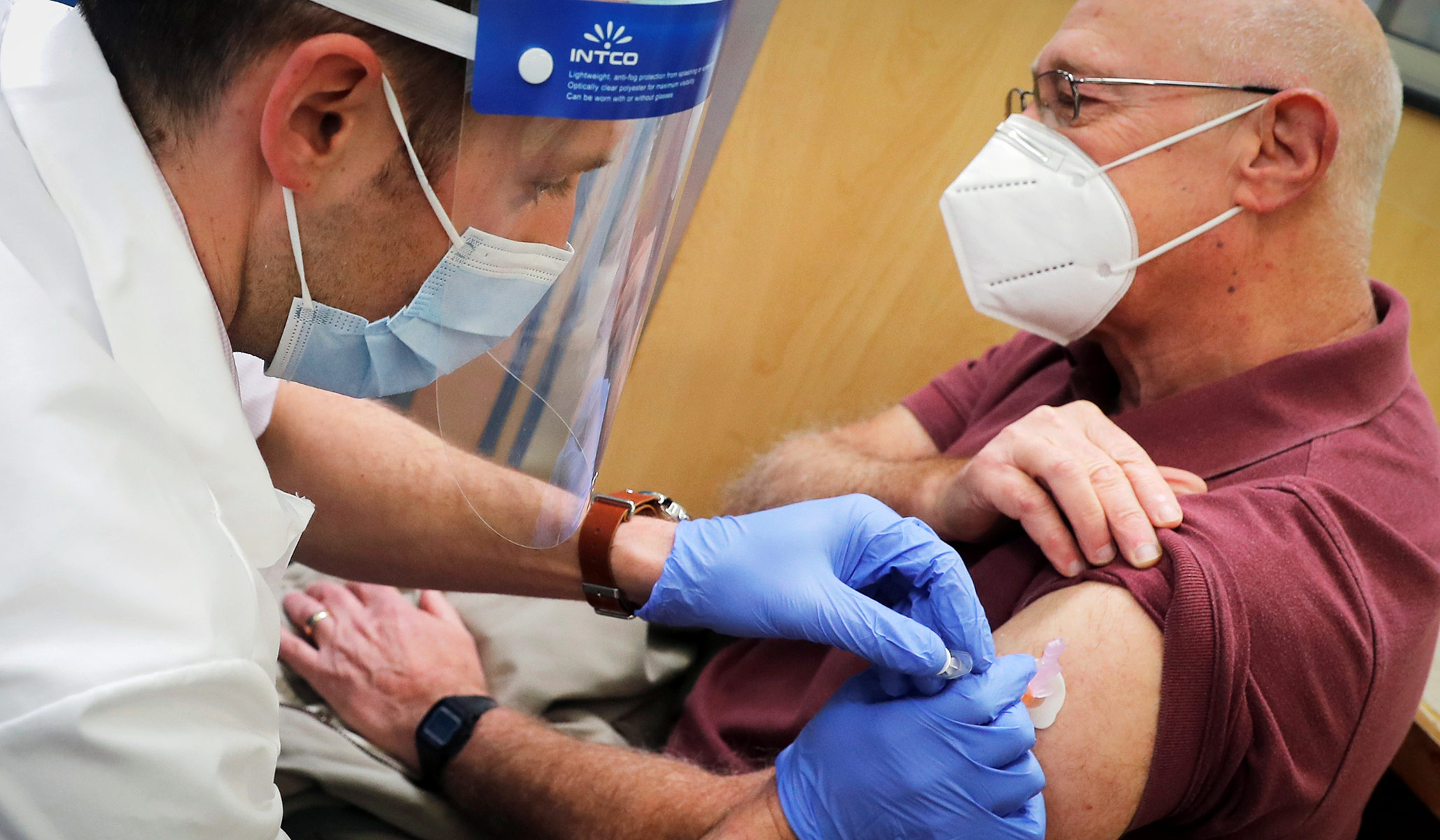task0778
Diamond Member
The question:
What is the objective reality concerning the COVID vaccine, and why are so many people refusing to get the shots?
Let's start with this:
Senator Ron Johnson, R-Wisc., claimed that the U.S. still doesn't have an FDA-approved vaccine.
SEN. RON JOHNSON: We do not have an FDA-approved vaccine being administered in the U.S. The FDA played a bait and switch. They approved the Comirnaty version of Pfizer drugs. It’s not available in the U.S. They even admit it. I sent them a letter three days later going "What are you doing?" What they did is they extended the emergency use authorization for the Pfizer drug vaccine that’s available in the U.S., here that’s more than 30 days later, they haven’t asked that very simple question. If you’re saying that the Pfizer drug is the same as the Comirnaty, why didn’t you provide FDA approval on that? So, there’s not an FDA-approved drug and, of course, they announced it so they could push through these mandates so that people actually think, "Oh, OK now these things are FDA approved." They are not and again, maybe they should be, but the FDA isn’t telling me why.

 www.foxnews.com
www.foxnews.com
The reason why the Comirnaty drug has been approved but the Pfizer one hasn't is because the FDA approval does not shield against lawsuits for adverse events. So they are using non-branded EUA label instead which is protected against lawsuits for adverse events. So, if Pfizer won't stand behind their product, I should trust them to have it injected into me?
Now let's talk about objective reality, in today's world can anyone really say with 100% certainty what is and is not the truth? This issue in particular is highly political, it probably got Trump out of office. I don't know that anything anyone says one way or the other can or should be taken as gospel truth. Reports are that Israel is one of the most vaccinated nations on Earth and yet they've got mounting numbers of COVID cases, so WTF? I wouldn't doubt that the vaccine is a good idea for those with a comorbidity, but what about the rest of us? According to the latest CDC numbers, the number of cases and the number of deaths is declining, so why should I get a shot, absent a good reason?
What is the objective reality concerning the COVID vaccine, and why are so many people refusing to get the shots?
Let's start with this:
Senator Ron Johnson, R-Wisc., claimed that the U.S. still doesn't have an FDA-approved vaccine.
SEN. RON JOHNSON: We do not have an FDA-approved vaccine being administered in the U.S. The FDA played a bait and switch. They approved the Comirnaty version of Pfizer drugs. It’s not available in the U.S. They even admit it. I sent them a letter three days later going "What are you doing?" What they did is they extended the emergency use authorization for the Pfizer drug vaccine that’s available in the U.S., here that’s more than 30 days later, they haven’t asked that very simple question. If you’re saying that the Pfizer drug is the same as the Comirnaty, why didn’t you provide FDA approval on that? So, there’s not an FDA-approved drug and, of course, they announced it so they could push through these mandates so that people actually think, "Oh, OK now these things are FDA approved." They are not and again, maybe they should be, but the FDA isn’t telling me why.

Sen. Ron Johnson: There is not an FDA approved COVID vaccine in the US
Senator Ron Johnson exposes the real Pfizer vaccine the FDA approved on ‘Fox News Primetime’
The reason why the Comirnaty drug has been approved but the Pfizer one hasn't is because the FDA approval does not shield against lawsuits for adverse events. So they are using non-branded EUA label instead which is protected against lawsuits for adverse events. So, if Pfizer won't stand behind their product, I should trust them to have it injected into me?
Now let's talk about objective reality, in today's world can anyone really say with 100% certainty what is and is not the truth? This issue in particular is highly political, it probably got Trump out of office. I don't know that anything anyone says one way or the other can or should be taken as gospel truth. Reports are that Israel is one of the most vaccinated nations on Earth and yet they've got mounting numbers of COVID cases, so WTF? I wouldn't doubt that the vaccine is a good idea for those with a comorbidity, but what about the rest of us? According to the latest CDC numbers, the number of cases and the number of deaths is declining, so why should I get a shot, absent a good reason?










